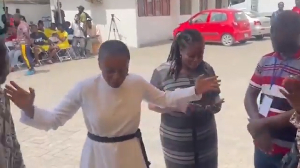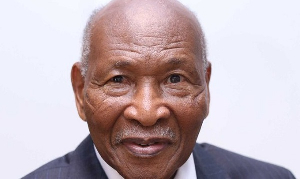Opinions of Wednesday, 5 July 2023
Columnist: Lawson Kwame Lugu, Richard Nii Amugi
Reigniting citizens passion for local level elections in Ghana
In a few months, the Electoral Commission of Ghana (EC) will conduct the 2023 District- Level Elections across all 6,272 electoral areas and 38,622 polling stations in the country. This is to renew the mandate of local assembly members or elect new ones.
Historically, district assembly elections have been held in 1988/89, 1994, 2002, 2006, 2010, and 2015, the most recent election was held on 17 th December 2019 across the various Metropolitan, Municipal, and District Assemblies (MMDAs).
According to the Districts Assembly Elections Act of 1994, “District Assembly elections (DLE) are held every four years and shall be held at least six months apart from parliamentary elections.”
The primary aim of these elections is to ensure local representation and democratic governance at the grassroots level.
However, over the years, there has been noticeable disinterest or decline in citizens’ passion for local-level elections. Many have predicted that this year’s elections might not receive more than 35 per cent. This article seeks to discuss ways to reignite citizens passion for local level elections in our country.
Electoral Commission: The EC should publish the timetable for the elections early or in a timely manner. This will drive citizens interest in the upcoming election. As of the time this article is published, there’s been little information on these upcoming elections, which has created low enthusiasm among citizens.
Enhancing civic education: The National Commission for Civic Education (NCCE) is an independent, non-partisan governance institution set up under Article 231 of the Constitution of the Republic of Ghana and the National Commission for Civic Education Act, 1993, Act 452 of the Parliament of Ghana. The Commission works to promote and sustain democracy and inculcate in the Ghanaian citizenry, the awareness of their rights and obligations, through
civic education.
The NCCE has over the years played an instrumental role in educating the
citizens about the importance of the local level elections. However, given its important mandate, there’s a room for improvement in the efforts of the NCCE. Recently, Professor Seidu Alidu, Head of Political Science Department, University of Ghana, in an interview with Ghana News Agency attributed the decreased enthusiasm amongst citizens towards local assembly elections to the low level of education regarding local governance systems.
He, therefore, called on the NCCE to intensify education on the benefits and rationale behind the establishment of the local governance system.
MMDA engagement with communities: MMDAs must frequently organize town hall meetings within the various electoral areas and interactive sessions through their Internal Generated Funds. Engaging communities through these platforms provide a chance for leaders to directly connect with their communities, address issues facing their people and act on their feedback. By doing this, MMDAs can foster an environment of openness, accountability, and inclusive governance at the local level, actively involving the grassroots
in decision-making processes and policy discussions. This creates a sense of feeling valuable, which would motivate citizens to vote.
Media engagement: Generally, the media plays an important role in our society, including educating, information dissemination, and entertaining us. When it comes to elections, the media provides extensive coverage before, during, and after elections. Our media has been praised for their role in our democracy, often called the fourth estate. The media can help increase this year’s voter turnout through early engagements of local-level government
experts on the importance of the district-level elections, project and ensure quality information to the people by providing a fact-checking mechanism.
Conclusion
The upcoming election is an important exercise for the youth, women, persons with disability (PWDs), and vulnerable groups. We need to do more to increase the turnout for the elections which is scheduled on Tuesday October 3, 2023. If possible, the date can be shifted to a weekend or declared a public holiday to help push in more to vote. As stated in this article, there is a need to increase education about the importance of elections, raise awareness, and
resolve any barriers to citizen involvement in these elections as soon as possible.













